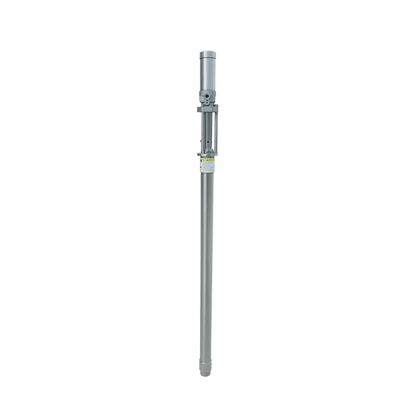What is a piston pump used for?
In the realm of fluid dynamics and hydraulic systems, there exists a marvel of engineering known as the piston pump. This versatile powerhouse has found its place in a myriad of industries, ranging from manufacturing and construction to oil and gas. In this article, we will delve deep into the world of piston pumps, exploring their applications, advantages, and the indispensable role they play in modern industrial processes.
Defining the Piston Pump:
At its core, a piston pump is a mechanical device designed to move fluids by employing reciprocating motions. As a type of positive displacement pump, it delivers a fixed volume of fluid with each stroke, ensuring consistent and precise fluid flow. The fundamental components of a piston pump include a cylinder, a piston, and inlet and outlet valves.
The piston, often cylindrical in shape, moves back and forth within the cylinder. This motion generates pressure changes within the cylinder, causing fluid to be drawn in through the inlet valve during the intake phase and pushed out through the outlet valve during the compression phase.
Applications of Piston Pumps:
The versatility of piston pumps is reflected in their wide range of applications across various industries:
Hydraulic Systems:
One of the most common applications of piston pumps is in hydraulic systems. These systems are found in machinery ranging from construction equipment to industrial presses. Piston pumps play a pivotal role in providing the high-pressure fluid required to power these machines' operations.
Automotive Industry:
In vehicles, piston pumps find use in power steering systems, where they provide the necessary hydraulic force to assist drivers in turning the steering wheel. Additionally, they are integral to hydraulic braking systems, enhancing safety by ensuring efficient and controlled braking.
Oil and Gas Sector:
The oil and gas industry relies on piston pumps for a multitude of tasks, from oil drilling and well servicing to refining and chemical processing. These pumps handle various fluids, including crude oil, drilling mud, and chemicals, with the precision and reliability required in such critical operations.
Manufacturing Processes:
Manufacturing plants use piston pumps in a range of applications. Injection molding machines utilize piston pumps to precisely control the flow of molding materials, while presses rely on them to generate the required force for forming materials into specific shapes.
Agriculture:
In the agricultural sector, piston pumps are employed in tractors and agricultural machinery to operate hydraulic attachments such as loaders, plows, and sprayers. These pumps contribute to increased efficiency and productivity in farming operations.
Aerospace Industry:
The aerospace sector utilizes piston pumps in aircraft systems, including landing gear and hydraulic flight control systems. These pumps provide the necessary hydraulic power to ensure the safe operation and control of aircraft.
Construction Machinery:
Construction equipment such as excavators, cranes, and concrete pumps rely on piston pumps for their hydraulic systems. These pumps contribute to the efficiency and precision of various construction tasks.
Advantages of Piston Pumps:
The widespread use of piston pumps can be attributed to the array of advantages they offer:
High Pressure Generation:
Piston pumps excel at producing high pressures, making them suitable for heavy-duty tasks that require substantial force and pressure.
Precise Flow Control:
The positive displacement nature of piston pumps ensures accurate control over fluid flow rates, making them indispensable in applications where precision is paramount.
Robust and Durable Design:
The sturdy construction of piston pumps, along with their simple yet effective design, contributes to their longevity and reliability, even in demanding environments.
Handling Various Fluids:
Piston pumps are versatile in their ability to handle different types of fluids, from viscous oils to corrosive chemicals, making them adaptable to a wide range of industries.
Variable Displacement Options:
Some piston pump designs offer variable displacement capabilities, allowing operators to adjust fluid output according to operational requirements.
Conclusion:
In the intricate world of fluid dynamics and mechanical systems, the piston pump stands as a remarkable testament to human ingenuity. Its ability to harness the power of reciprocating motion and translate it into efficient fluid movement has transformed industries and revolutionized modern engineering practices. Whether in hydraulic systems, automotive applications, or heavy industrial processes, the piston pump's reliability, precision, and adaptability have positioned it as an indispensable tool in contemporary engineering.
As technology continues to advance, piston pumps will undoubtedly remain at the forefront of fluid power systems, driving progress, innovation, and efficiency across various sectors. From simplifying complex operations in manufacturing plants to ensuring safety in aerospace and oil exploration, the piston pump's legacy is firmly ingrained in the foundation of modern industrial practices.


